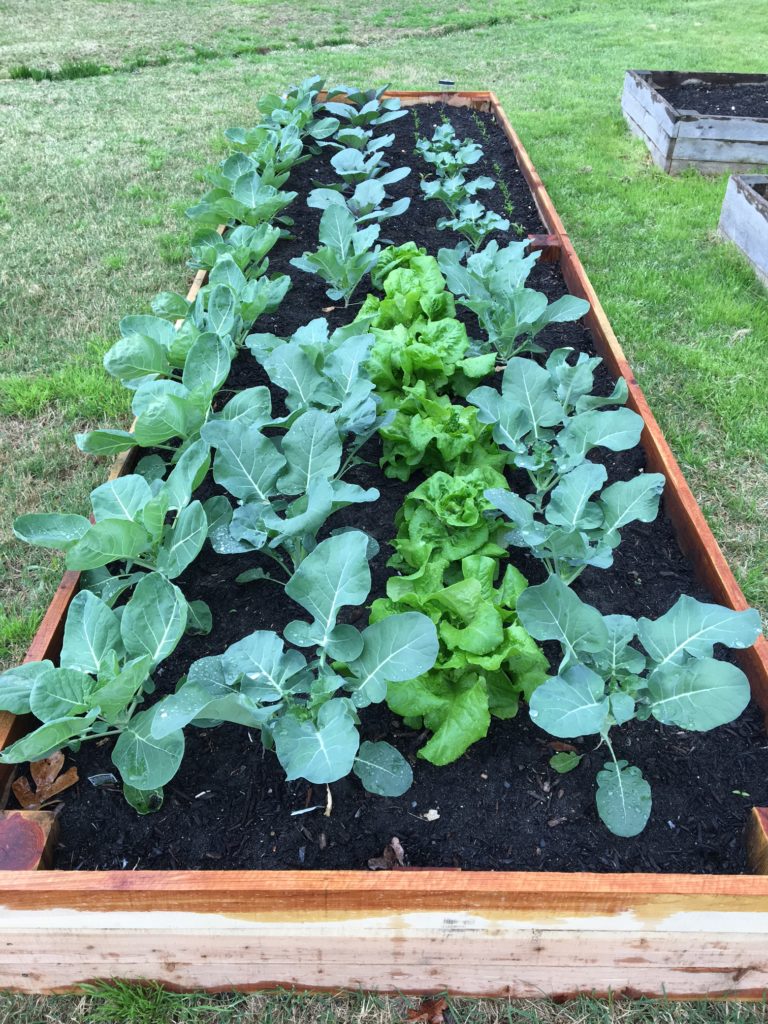Pests on Cool Season Veggies

While our temperate climate here in Arkansas makes for optimum growing of many cool season veggies, we still can have insect and disease issues. And it’s important to know what to look for and how to treat these pests on cool season veggies.
Cabbage Loopers and Worms
The single biggest problem is going to be cabbage worms. There are actually three different species; imported cabbage worm, cabbage looper and diamondback worm. All are larval states of either moths or butterflies. They are also all hard to spot because they are both small and a similar shade of green as plant leaves. They like to hang out on the underside of leaves on plants like cauliflower, kale, and broccoli, but they like all cool season veggies. As temperatures warm in the spring, check your garden often for dark green frass (caterpillar droppings) on leaves. Look carefully at the undersides of leaves. Treat all plants when you see evidence of this pest; they are voracious eaters and can quickly decimate crops.
There are some effective organic solutions for this destructive pest; the first one being BT, or Bacillus thuringiensis. This natural control is specifically for soft bodied pests like caterpillars. It’s fast acting and more selective* (see end of post for more on this), making it our go-to for organic cabbage worm control. The second organic option is Spinosad, which is effective as well. Spinosad controls other a broader range* of insects than BT; such as flea beetles, which can also be an issue on some cool season veggies.
Quick tip on getting rid of overlooked worms on your harvest; salt. Worms don’t like salt. And when you soak your harvest in salty water, they detach from the plant, in an effort to get away from the salt. Leave your harvest in salty water for an hour or so, then discard the water, rinse off your veggies and you should be good to go!
Other Insect Pests
Two other pests that occasionally pop up, primarily on lettuce, are spider mites and aphids. While not devastating to your garden these pests can make a mess and reduce the appearance and shelf life of infected lettuce leaves. Spinosad soaps or other insecticidal soaps can help control aphids and mites. Other solutions include neem oil, and for aphids, Diatomaceous Earth (compliant for use in organic gardening) also works. Remember to re-dust after irrigating or rainfall. Cover as much of the plant as possible.
While not technically an insect, we thought this might be a good place to mention slugs, which can be a problem on lettuce. Repeated, generous dustings with Diatomaceous Earth should take care of slugs.
Disease Issues
While disease isn’t as common in cool season veggies, wilt can be an issue in lettuce, spinach, or greens. This is commonly the result of too much water, in soil that doesn’t drain well. Spring in one of our rainy seasons here in Arkansas. All that rain can cause the roots and base of these plants to rot out. While it’s impossible to control rainfall make sure that you are not overwatering your plants when you do have to water them. Also make sure they are planted in well draining organic matter. Both well draining soil and avoiding over watering well help stave off wilting and root rot.
Remove and discard diseased plants as opposed to composting them to avoid spreading the issue.
Other Tips
Good cultural practices can help reduce disease and insect issues. Remember to do a good garden clean up at the end of each growing season. Remove or debris that insect eggs or disease spores could over winter on. Prep your planting area with organic matter to increase drainage. Do a drainage test before planting and avoid over watering and over crowding. Plant healthy, happy transplants. Try to plant disease resistant varieties.
If you have additional questions, come see us! Our team is ready to help however we can. Last but not least, with any chemical control method, follow label instructions for best results.
* Selective vs. Broad Range- People often hear ‘organic’ control and think alright, that’s the best because it won’t harm beneficial insects. Not so. Organic pesticides are naturally occurring as opposed to synthetically made. They can be what’s called ‘broad spectrum’, meaning they control a wide range of insects as opposed to narrower range, which is considered ‘selective’. The ideal control method would be both organic and selective but depending on the pest, that ideal product may not exist.